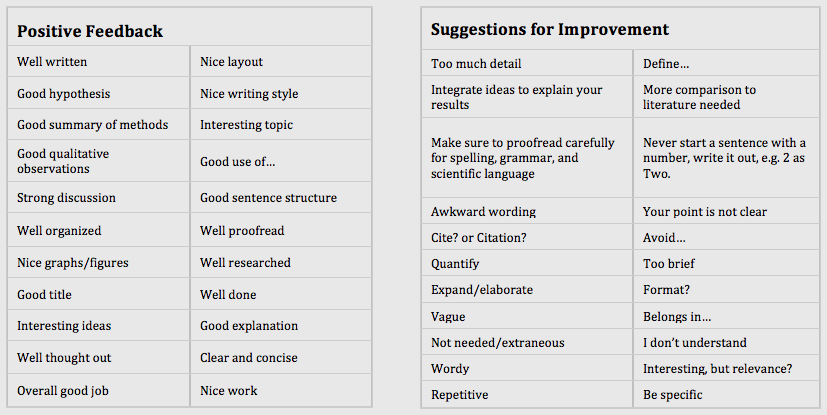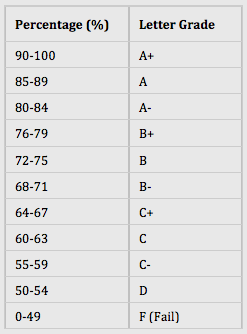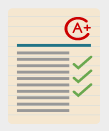Grading guidelines
Grading is one of the main ways that students have of tracking how they are doing in their courses. It is a chance for students to obtain feedback on what they are doing well and what they need to improve.

Providing Feedback
Writing comments on the student papers that you are grading is an excellent way to communicate to your students how they can improve their work for future assignments; however, these comments must be clear, concise, and constructive. Numerous comments on papers tend to overwhelm students, and most students will act only on the simplest of suggestions. Also, writing excessive comments will make grading papers an impossibly lengthy task. Therefore, comments need to be limited, but should be specific about what needs to be improved, whether it is grammar, structure, or content. Finally, comments need to provide constructive criticism. Students may become discouraged if your comments are too negative. Make sure to mention not only what needs improvement, but also what has been done well. Avoid sarcastic comments – even if you are only joking, your students may not realize this and could be hurt by what could be interpreted as a demeaning comment.
The following is a list of abbreviations commonly used during paper review that may be useful in giving feedback to your students:
¶ = new paragraph
sp. = spelling
|| = align vertically
The following are lists of suggested feedback phrases for commenting on student papers.

Grading Practices
Each course will have different means of assessing student progress, through assignments, quizzes, essays, exams, and other activities that will be evaluated. Instructors are responsible for providing written guidelines to all students at the start of each course. This should outline how the final grade for the course will be calculated, and include any related policies such as arrangements that may be made for students who are unable to complete a test or other graded work because of short term illness or for other reasons.
Typically each assessment contributes a portion of the course grade which is ultimately reported as a percentage achieved. In most faculties, individual course are normally graded as shown in this table:

Faculties, departments and schools reserve the right to scale grades in order to maintain equity among sections and conformity to University, faculty, department, or school norms. Grades are not official until they appear on a student’s academic record.
Academic integrity
Plagiarism, cheating, or resubmitting an assignment initially prepared for another course without permission are all serious offenses.
What is plagiarism?
Plagiarism is using another person’s ideas without giving credit and is considered intellectual theft. If you submit or present the oral or written work of someone else you are guilty of plagiarism.
Plagiarism may be…
(1) Accidental or Unintentional: The student may not even know that they are plagiarizing. Students must be made to understand the difference between quoting and paraphrasing, as well as the proper way to cite material.
(2) Blatant: Students are well aware of what they are doing. Purposefully using someone else’s ideas or work without proper acknowledgement is plagiarism. This includes turning in borrowed or bought research papers as their own.
(3) Self: Submitting the same term paper (or substantially the same term paper) for two courses without getting permission from your instructor is plagiarism.
As part of the teaching team will you be required to check for plagiarism?
YES! Instructors can detect passages that are familiar or use vocabulary beyond the expertise of students. Passages that are suspicious can easily be checked on-line through Google. In addition, UBC subscribes to TurnItIn.com, an online service that scans essay and term papers to check for material copied from websites or published from paper mills (such as cheater.com), published works, or previously submitted essays http://www.library.ubc.ca/home/plagiarism/
Resources on academic integrity:
UBC policy on plagiarism at www.vpacademic.ubc.ca/integrity
A guide to academic honesty at http://www.arts.ubc.ca/faculty-amp-staff/resources/academic-integrity.html.
A Plagiarism Resource at http://learningcommons.ubc.ca/get-study-help/academic-integrity/.
